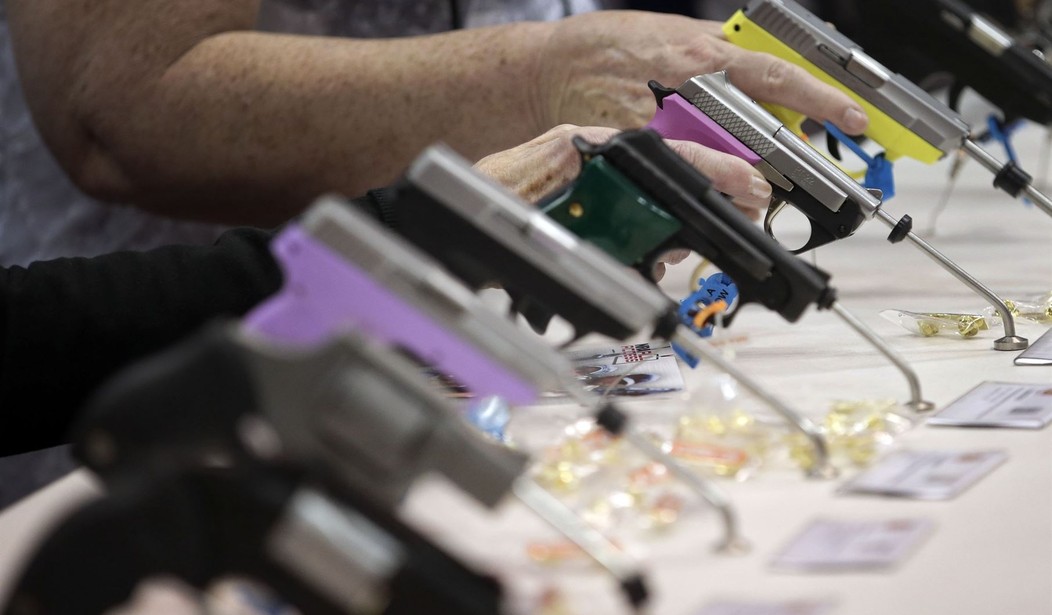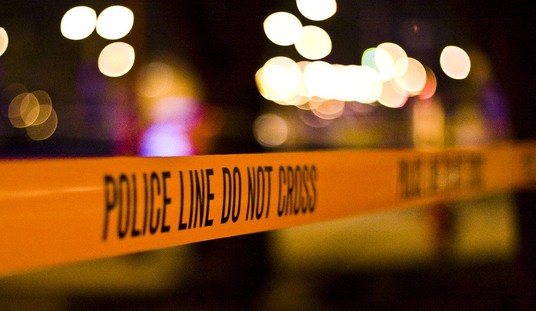It sure looks that way, and now there’s a federal lawsuit over the denial by the Honolulu Police Department.
Blake Day was on the job as a contractor for a company called Five Brothers Asset Management in January of this year when he showed up at a home in Volcano, Hawaii. Day had been informed that the house in question had been vacated and foreclosed on, and verified that no one was living at the home with a neighbor before entering and beginning his work. A short time later, however, the property owner (who had indeed vacated the premises) saw Day inside the home on a security camera and raced to the property, blocking Day’s car with his own.
According to Day, the property owner then proceeded to yell obscenities at him and demanding to know why was at his home. The property owner was holding something in his hand, which Day believed was a weapon, and he proceeded to fire several shots from a non-lethal pepper ball gun in self-defense.
Believe it or not, Day and the property owner managed to de-escalate the situation before police arrived on scene, and though Day was briefly detained no charges were ever filed against him. But when Day applied for a concealed carry license in May of this year, he was soon denied by the HPD, which told him that the reason for his rejection was his involvement “in other recent violent conduct.” The denial letter states that the decision to deny his application was based entirely on the discretion of the Honolulu police chief (or his designee), who apparently believed that Day’s act of self-defense meant he wasn’t “suitable” enough to exercise his right to carry a firearm.
Day’s now filed a federal complaint, and is seeking more than just a carry permit. He’s hoping to undo the discretionary policies that are still in place even after the Supreme Court ruled that licensing authorities must use “narrow, objective, and definite standards”, not their own judgment and subjective opinion on things like suitability.
Mr. Day requests a declaratory judgment declaring that Defendant’s policy which denies applicants the right to carry a firearm unless and until the police chief appraises facts, exercises his judgment, and/or forms an opinion that the applicant is of “good moral character” or “suitable” based on the criteria set forth in sections 6.4 and 7.2 of the Manual violates the Second Amendment. The offending provisions of the Manual are unconstitutional on their face due to the broad grant of discretion to the police chief.
Mr. Day requests a declaratory judgment declaring that the denial of Mr. Day’s application based on the Chief’s assessment that Mr. Day was not of “good moral character” and/or “suitable” due to “recent violent conduct” violates Plaintiff’s Second Amendment rights.
Day is also asking for an order that would, among other things, require the Honolulu PD to use objective standards for all applicants going forward, as well as prohibiting any licensing authority from using “violent conduct” to deny a permit when there has been no judicial determination that the conduct actually occurred or was criminal in nature.
Hawaii isn’t the only formerly “may issue” regime where these subjective denials are taking place. One of the allegations in the newly filed California Rifle & Pistol Association v. Los Angeles Sheriffs Department is that the LASD is denying carry permits based on being the victim of a crime. Erick Velasquez, who’s one of the named plaintiffs in the case, already had an active carry permit when his car was broken into in May of this year and three firearms stolen from a range bag that was in the locked trunk of his car. Velasquez immediately informed police of the theft, but about ten weeks later he was informed that Los Angeles County Sheriff Robert Luna had denied his renewal application. Originally Velasquez wasn’t given a reason for the objection, but says he was later told by a sergeant in the sheriff’s department that he was turned down because his guns had been stolen.
If acting in self-defense or being the victim of a crime is considered a good reason to deny someone a concealed carry license, then the Bruen decision striking down the “may issue” licensing regime in New York State is utterly toothless. These formerly “may issue” states are flagrantly defying the Supreme Court and violating the Second Amendment rights of residents in the process, and I’m glad to see that Mr. Day has a formidable team of attorneys in Richard Holcomb and Alan Beck representing him in this case. Day’s case has also been assigned to the same judge who granted a temporary restraining order blocking enforcement of many of Hawaii’s post-Bruen “gun-free zones”, which is another positive development. Day’s challenge may not only result in his own application being granted, but preventing other gun owners in similar circumstances from having their own rights denied based on the subjective opinions of the licensing authorities.








